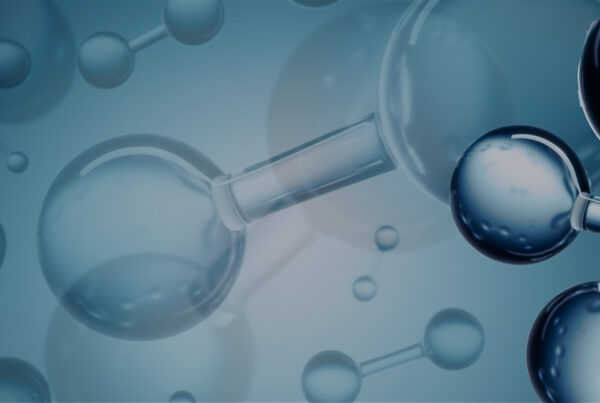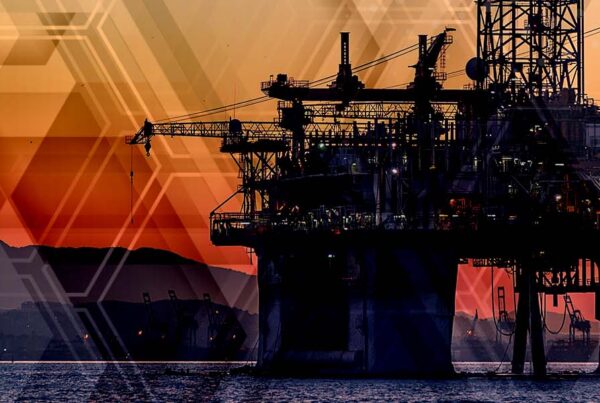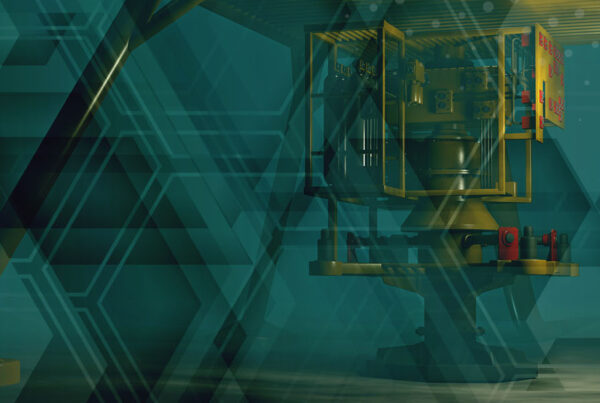NOVEMBER 2024
October proved to be a challenging month for the European hydrogen market. Developers continued to vocalise their concerns, several major projects were cancelled, and ambitions were scaled back. Developers are struggling to create viable business cases, with costs escalating and offtakers withdrawing from projects. While setbacks are currently more prevalent, government support is still providing hope for the sector’s potential.
This month, we explore some of these key challenges and examine the measures in place to ensure continued progress.
Developers voicing concerns
While uncertainty in the hydrogen sector is not new, it is becoming increasingly evident that despite ambitious production targets and mandates for renewable hydrogen use, industry players remain hesitant or unable to commit. At last month’s Hydrogen Technology Expo Europe in Hamburg, Westwood spoke with stakeholders across the value chain, where several recurring themes emerged. Key among these was inadequate funding and the challenge of securing long-term offtake agreements. Many offtakers are reluctant to be early adopters, wary of committing to contracts where current prices are expected to decrease over time.
Uniper has been publicly vocal about these challenges. Christian Stuckmann, Vice President of Hydrogen Business Development, emphasised[1] the difficulty in finding creditworthy buyers who can guarantee the long-term cash flow necessary to sustain projects. Stuckmann also highlighted the need for stronger regulatory support, particularly around pricing structures, to provide greater certainty for both developers and offtakers. Echoing sentiments heard at the Hydrogen Technology Expo, the industry is pointing to entities like H2Global’s Hintco, which serves as a market maker to bridge the gap between producers and buyers, as a model that could help stimulate industry growth.
Uniper’s CEO, Michael Lewis, highlighted[2] similar challenges, pointing out that current subsidies fall short of supporting the company’s hydrogen ambitions. He cited the significant price disparity between grey hydrogen and renewable or low-carbon hydrogen – a gap that government intervention could help narrow.
Equinor also highlighted challenges posed by regulatory requirements such as the EU’s Renewable Energy Directive III (REDIII), which mandates 42% renewable hydrogen in industrial applications by 2030. This regulation presents a dilemma for CCS-enabled projects, as buyers are reluctant to commit to long-term contracts now, uncertain about whether and at what price they will source renewable hydrogen in the future.
These challenges are not only stalling project development but are also delaying essential infrastructure.
Major project cancellations
October started with a wave of setbacks for hydrogen and sustainable fuel projects, with three major cancellations in the first two weeks alone. McPhy announced in a 02 October press release that their 24MW electrolytic project, which was expected to reach FID by year-end, was abandoned. The primary reason cited was the last-minute withdrawal of the offtaker, highlighting the critical role offtake agreements play in creating greater project certainty[3].
Shortly after, Benbros Energy withdrew[4] from the €720mn European Hydrogen Bank (EHB) pilot auction, despite having secured €26mn in funding for its 60MW El Alamillo H2 project in April. The decision came amid a lack of known offtake, which may have made the funding insufficient to justify continued investment into the project’s development. This withdrawal stresses the difficulties for the sector. Even with government support, that is likely only the first step in realising a successful project.
Uniper’s 200MW e-SAF SkyFuelH2 facility in Sweden also came to an end, pointing to similar challenges as the aforementioned projects including challenging market conditions, rising costs, uncertainty and timing of demand for sustainable fuels.
Portfolio optimisation and timelines
In addition to project cancellations, developers have been strategically scaling back their hydrogen initiatives. Last month, Ørsted withdrew from the Green Fuels for Denmark consortium who were planning to develop a 1.3GW electrolytic e-methanol and SAF project at Avedore Power Station in Copenhagen, despite receiving IPCEI funding at the end of 2022. Ørsted has chosen to focus more closely on its core wind business, exiting from the Idomlund Power-to-X project with Skovgaard Energy in September and its FlagshipONE e-methanol project in August.
BP’s 3Q results presentation further underscored this trend. The company announced plans to narrow its hydrogen portfolio, intending to develop only five to 10 hydrogen projects by 2030, having cancelled 18 projects to date. Part of a larger cost-saving strategy, BP’s scaled-back hydrogen ambitions are part of a wider reduction in its clean energy project portfolio.
Essential infrastructure was also impacted in October, with Energinet postponing its hydrogen pipeline connecting Denmark and Germany from 2028 to 2031, citing varying project maturities, increasing complexity, and extended planning and environmental review processes.
Signs of continued support
In early October, the UK government announced £21.7bn in funding over 25 years to support two major carbon capture clusters in northern England, including large CCS-enabled hydrogen projects such as EET Hydrogen’s Hynet North West and BP’s H2Teesside. At the end of the month, the government also reaffirmed support for 11 electrolytic hydrogen projects selected in the HAR1 auction from last December, signalling ongoing commitment to hydrogen despite the challenges faced so far.
In Germany, the Federal Network Agency approved a 9,040km hydrogen core network, set to be operational by 2032, with initial pipelines coming online as early as next year. Connecting hydrogen production centres, storage and end-users, the €18.9bn network will repurpose 60% of natural gas pipelines and is supported by state guarantees and an amortisation scheme to balance early-stage low revenues. The initiative aims to advance Germany’s decarbonisation, create jobs and support industrial growth, with capped user fees to keep early adoption affordable.
The European Commission also awarded €4.8bn in grants to 85 net-zero projects across 18 countries, focusing on energy-intensive industries, renewable energy, hydrogen production, carbon management and sustainable mobility. Expected to reduce CO2 emissions by 476Mt by 2030, this largest Innovation Fund allocation to date brings total support to €12bn, advancing the EU’s Net-Zero Industry Act goals. Among the hydrogen projects funded by the EU Innovation Fund: Statkraft’s 200MW H2HubEmden production facility, H2BE’s 1GW CCS-enabled hydrogen project in Ghent, and European Energy’s 50MW Kasso PtX green methanol production facility.
While the hydrogen industry faces significant financial, regulatory and market challenges, government support persists. However, stronger regulatory frameworks and mechanisms to address price and demand uncertainty will be needed. Without these, the sector risks falling short of its ambitious goals, leading to further cancellations and setbacks as already seen last month. Addressing these issues will be essential if hydrogen is to fulfil its potential as a key piece of Europe’s clean energy future.
Key European Project Watch
Key project announcements and developments in October
| Project | Update |
| Kintore Hydrogen | Statera Energy has submitted a Planning Permission in Principle application for its Kintore Hydrogen project, an electrolytic hydrogen facility near Kintore, Aberdeenshire. Phase 1 of the project is expected to have a capacity of 500MW coming online in 2028 with an expansion in phase 2 to 3GW by 2030. |
| HyBit | Plug Power has delivered 10MW of PEM electrolysers to the HyBit hydrogen project in Bremen, Germany. The project, located at SWB’s Mittelsbüren power plant, is set to produce hydrogen for use in ArcellorMittal’s steelworks in Bremen. The 10MW’s of PEM electrolysers are made up of two 5MW units. Another electrolyser facility is expected to be constructed on the same site by 2028 with a capacity of 50MW, however, the hydrogen from this facility is expected to be made available for other customers, not the neighbouring steel mill. |
| French-Belgium hydrogen pipeline | GRTgaz and Fluxys have launched a market call to assess the demand and economic feasibility of a 150km open-access hydrogen pipeline connecting Dunkirk, France with Ghent and Antwerp, Belgium. This cross-border infrastructure aims to supply low-carbon and RFNBO hydrogen to heavy industries like steel, refining and chemicals, supporting decarbonisation efforts in these industrial hubs. With GRTgaz’s DHUNE project in Dunkirk and Fluxys’ infrastructure in Belgium progressing for completion by 2026, the pipeline responds to growing market demand for hydrogen and aligns with European carbon neutrality goals. Recognised as a Project of Common Interest by the European Commission, the call for market interest runs until 29 November 2024. |
| Power2X SAF project | Dutch developer Power2X and Rotterdam-based storage tank operator Advario have announced a sustainable aviation fuel project in Rotterdam capable of producing more than 250,000t a year of SAF from hydrogen. The EU has mandated that flights departing EU airports must use fuel that contains 1.2% of aviation fuel produced from renewable hydrogen, with Power2X anticipating that this project can meet at least 40% of the European requirement for renewable hydrogen based SAF. A date for FID has not been announced. |
| Lhyfe Le Cheylas | Lhyfe has launched the construction of its largest electrolytic hydrogen production site in France at a former steelworks site in Le Cheylas, Auvergne-Rhône-Alpes. The facility will have a 10MW electrolysis capacity, producing up to 4t of hydrogen per day by 2026. The hydrogen produced will decarbonise local heavy transport and industry, including replacing grey hydrogen in sectors like metallurgy and microelectronics. Lhyfe has a 10-year agreement with HYmpulsion to supply regional hydrogen stations, contributing to clean mobility and low-carbon industry goals in the region. |
| European Energy Esbjerg | European Energy has inaugurated their first electrolytic hydrogen production facility in Måde, Esbjerg. Construction of the facility was completed in June 2024 with Stiesdal providing the first alkaline electrolyser with two more to be added by 2025. Centrica will serve as the facility’s balancing and optimisation partner, ensuring that energy usage and hydrogen production are efficiently managed. An offtake contract has been signed with the Port of Esbjerg and an unnamed "world-class industrial gases company". Excess heat will be supplied to the local heating utility in Esbjerg. |
[1] World Hydrogen Week conference, Copenhagen October 2024
[2] Frankfurter Allgemeine Zeitung 11/10/2024
[3] Westwood Hydrogen’s Project Certainty feature provides a comprehensive assessment of pre-sanctioned hydrogen supply projects, evaluating their likelihood of reaching FID based on key criteria across the project value chain. The presence of offtake agreements is a key component of this evaluation.
[4] European Commission announcement 07/10/2024
If you have any project updates that you would like to share with Westwood’s Hydrogen team, please contact Jun using the contact details below.
Jun Sasamura, Manager – Hydrogen
[email protected]
View all issues of Hydrogen Compass here:




